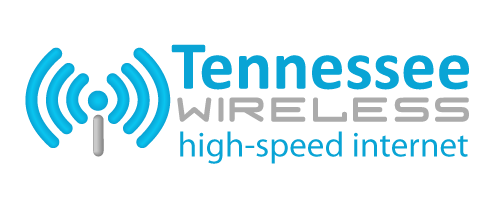DIGITAL MILLENNIUM COPYRIGHT ACT
Notice and Procedure for Making Claims of Copyright Infringement
Pursuant to Title 17, United States Code, Section 512(c)(2), all notifications of claimed copyright infringement on the Tennessee Wireless system or Web site should be sent ONLY to our Designated Agent.
NOTE: THE FOLLOWING INFORMATION IS PROVIDED SOLELY FOR NOTIFYING TENNESSEE WIRELESS THAT YOUR COPYRIGHTED MATERIAL MAY HAVE BEEN INFRINGED. WE CAUTION YOU THAT UNDER FEDERAL LAW, IF YOU KNOWINGLY MISREPRESENT THAT ONLINE MATERIAL IS INFRINGING, YOU MAY BE SUBJECT TO HEAVY CIVIL PENALTIES. THESE INCLUDE MONETARY DAMAGES, COURT COSTS, AND ATTORNEYS FEES INCURRED BY US, BY ANY COPYRIGHT OWNER, OR BY ANY COPYRIGHT OWNER’S LICENSEE THAT IS INJURED AS A RESULT OF OUR RELYING UPON YOUR MISREPRESENTATION. YOU MAY ALSO BE SUBJECT TO CRIMINAL PROSECUTION FOR PERJURY. DO NOT SEND ANY INQUIRIES UNRELATED TO COPYRIGHT INFRINGEMENT (e.g. REQUESTS FOR TECHNICAL ASSISTANCE OR CUSTOMER SERVICE, REPORTS OF E-MAIL ABUSE, etc.) TO THE CONTACT LISTED BELOW. YOU WILL NOT RECEIVE A RESPONSE IF SENT TO THAT CONTACT.
Written notification must be submitted to the following Designated Agent:
Tennessee Wireless Legal Department
Tennessee Wireless, Inc.
107 S. Public SQ
Centerville, TN 37033
copyright@tennesseewireless.com
Under Title 17, United States Code, Section 512(c)(3)(A), the Notification of Claimed Infringement must include the following:
Physical or electronic signature of a person authorized to act on behalf of the copyright owner.
Identification of the copyrighted work claimed to have been infringed or a representative list if multiple works are involved.
Identification of the material that is claimed to be infringing that should be removed or access to disabled and information reasonably sufficient to enable the online service provider to locate the material (usually a URL to the relevant page).
Information reasonably sufficient to allow the online service provider to contact the complaining party (address, phone number, e-mail address).
A statement that the complaining party has “a good faith belief that use of the material in the manner complained of is not authorized by the copyright owner, its agent or the law.”
A statement that the information in the notice is accurate, and under penalty of perjury, that the complaining party is authorized to act on behalf of the copyright owner.
Transitory Digital Network Communications Provider Exemption
Title 17, United States Code, Section 512(a) provides that certain service providers shall not be liable for copyright infringement “by reason of the provider’s transmitting, routing, or providing connections for, material through a system or network controlled or operated by or for the service provider, or by reason of the intermediate and transient storage of that material in the course of such transmitting, routing, or providing connections” in certain circumstances. Tennessee Wireless provides transitory digital network communications.
